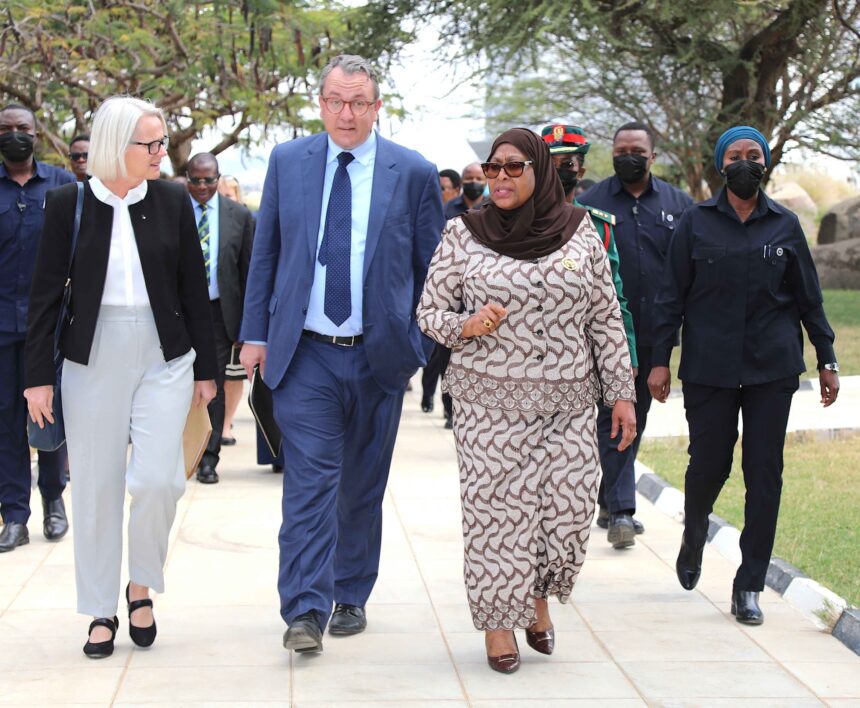Today June 11, the President of Tanzania witnessed the signing of the framework agreement with Norway’s Equinor and Britain’s Shell at Chamwino State House in Tanzania’s capital Dodoma.
The Minister for Energy, Hon January Makamba, who signed the agreement for Tanzania, said that the signing would pave the way for a final investment decision in 2025 on the facility as the construction is expected to begin in July 2023 and be completed by June 2028.
“Today’s step is very crucial toward the finalization of this agreement. A stage like this hasn’t been reached since negotiations of this project started,” Makamba said in a speech before President Samia Suluhu and other top officials from energy sectors and companies.
The signing of the framework agreement brings Tanzania closer to the construction of a $30 billion liquefied natural gas (LNG) export terminal.
The LNG project in Tanzania will significantly impact Tanzania’s economy. In President Samia’s speech shortly after the signing of the framework agreement, she was quoted as saying that the Special Economic Zone (SEZ) will be made along with the LNG project to cater for all needs during the project’s implementation.
President Samia urged the private sectors in Tanzania to be prepared for the imminent opportunities at the project, such as service provision and production of goods.
Tanzania will receive more than half of the total project income through the share of the production allocated to the government and the tax paid by the investor.
In addition to profit share and tax, the government also benefits as a participating investor in the project through TPDC. The multiplier effects from the LNG value chain will produce significant government revenues.
The LNG project will be deemed the largest on Tanzanian soil, estimated to cost around $30 billion. The project will provide domestic gas for power generation and industrial development, multiple opportunities for local businesses, and an influx of jobs and new infrastructures.
Moreover, the LNG project will cost a whooping of Tsh 70 trillion, whereby 10% of it, which is equivalent to Tsh 10 trillion, will be spent in Tanzania to purchase materials and use services such as transportation, food, security, accommodation, lending of machines, oil, communication, insurance and other activities throughout the entire time of project’s implementation.
The project will take four to five years to complete and create more than 10,000 jobs during the construction phase and 6,000 job opportunities at the end of the project.
Of ($30 billion) Tsh 70 trillion of the project’s total investment, Tsh 2 trillion has already been spent on exploration, construction and other activities, significantly impacting Tanzania’s economy. The LNG project will be important in supporting Tanzania’s vision for a sustainable economy and development.


